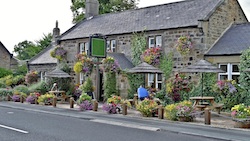 British pubs are closing at a rate of approximately 20 a week for many reasons. Some of these pubs are simply not worth saving, but many local communities see their pub as a valuable community asset that, under different and possibly more enlightened ownership, can be preserved. So how can local people work together to save or even buy their local?
British pubs are closing at a rate of approximately 20 a week for many reasons. Some of these pubs are simply not worth saving, but many local communities see their pub as a valuable community asset that, under different and possibly more enlightened ownership, can be preserved. So how can local people work together to save or even buy their local?
As a first step, there is a lot of freely available information. The Campaign for Real Ale, Pub is the Hub and the Plunkett Foundation all provide useful free guidance.
Next, consider whether the pub might be listed as an “asset of community value” under the Localism Act 2011. With backing from at least 21 community members, an application for listing can be made to local authorities. Listing will be a material consideration to be taken into account in any planning application, for example to convert a pub into residential accommodation. Listing also imposes a six-month moratorium in the event of a planned sale of a pub, allowing the community time to consider buying the pub itself. To date over 100 pubs have been listed and CAMRA is targeting 300 by the end of 2013.
So how might a community join together to buy its pub? As an example, a team of dedicated locals have been working together to buy The Tally Ho in West Berkshire. In 2012 the brewery that owned it suddenly closed the 250-year-old pub and sold it to a property developer, with the likely prospect of conversion into housing. Outraged locals quickly formed an action group and successfully opposed the developer's initial planning application.
Next step was for the action group to canvass local support to determine whether they could raise the money to buy the pub from the developer. Enough pledges were made to allow the formation of a special purpose company, The Tally Ho Community Pub Ltd, which is where tax relief became a key factor.
For many years, individual investors who subscribe for shares in most small and medium trading companies (property developers and dealers being among the exceptions) have been able to qualify for Enterprise Investment Scheme (EIS) tax relief. Income tax relief is given at 30 per cent of the amount invested so, for example, an investor who subscribes £10,000 for shares can reduce his or her tax bill by £3,000. Furthermore, after at least three years there is normally complete capital gains tax exemption for any gain realised on sale, and there may be further income tax relief if the shares are realised at a loss.
Even better, in April 2012 the Government introduced the Seed Enterprise Investment Scheme (SEIS), targeted at new and early stage companies. The maximum amount a company can raise is £150,000 (as compared to an annual £5 million under EIS) but investors qualify for 50 per cent upfront income tax relief, eg a £5,000 reduction in tax for every £10,000 invested. Further capital gains tax and loss reliefs lead to the remarkable conclusion that it is possible to achieve 103 per cent relief on a completely failed investment - not that the Tally Ho is expected to fail.
HM Revenue & Customs were persuaded that an investment of an initial £150,000 into The Tally Ho Community Pub Ltd would be SEIS qualifying and that a further investment after the pub was purchased would qualify for EIS relief.
So, having defeated much manoeuvring by the developer, the action group were able to combine equity investment and loans and finally succeeded in buying the Tally Ho in June 2013. HMRC have now issued certificates allowing the equity investors to claim £75,000 in tax relief.
The action group have been hard at work repairing the pub, ahead of a planned reopening in November 2013. Key to their future success has been agreeing between themselves how the business is to be operated. There is no universal answer to this, but it is essential to adopt a financial plan and a robust management structure.
But the message is clear - with a committed local community, professional tax advice from an early stage, and the help of some valuable tax incentives, it really is possible to rescue a community resource from the hands of developers, pub companies and others with their own vested interests.
About the author

Have you any commercial property events you'd like to tell us about? It could be networking, exhibitions, seminars, industry lunches or sporting fixtures. We will list them for free. Just email newsdesk@propnews.co.uk with the following details: Event name, date, time, venue, cost, booking info and a brief description of the event.
To list your property job vacancies on Property News. Email: richenda@propnews.co.uk.